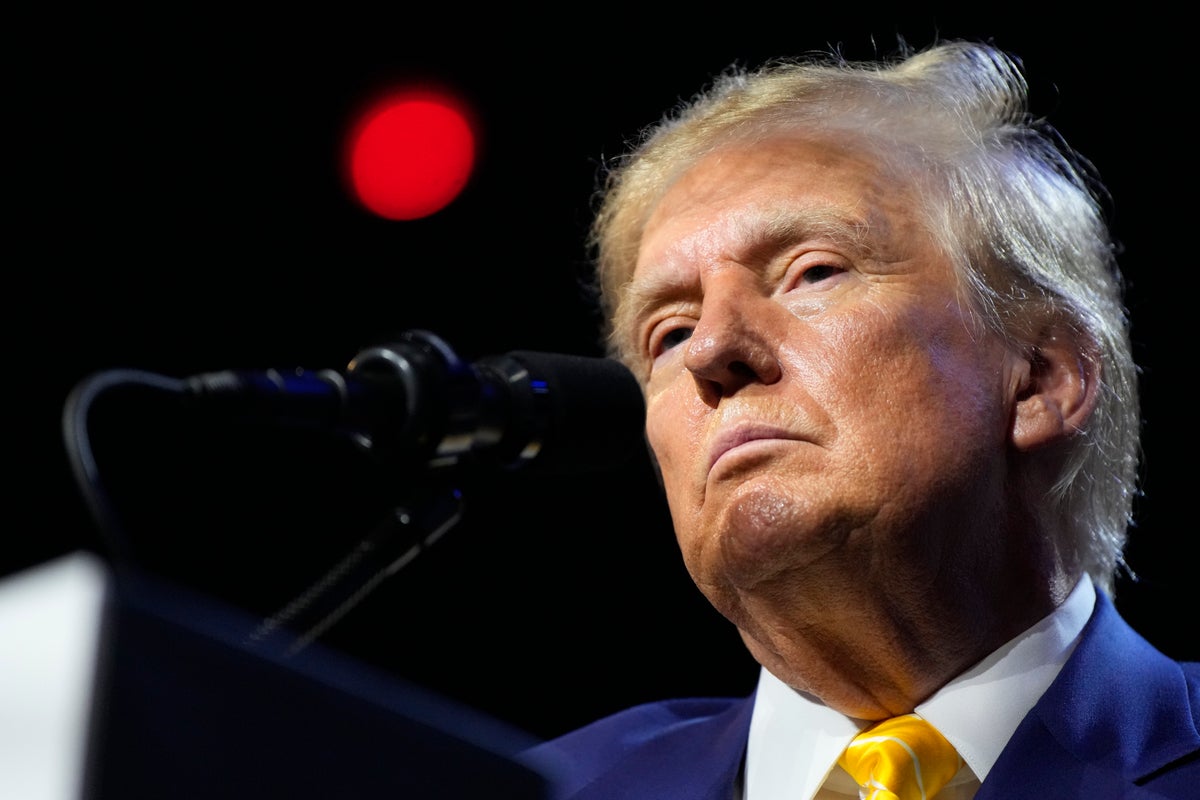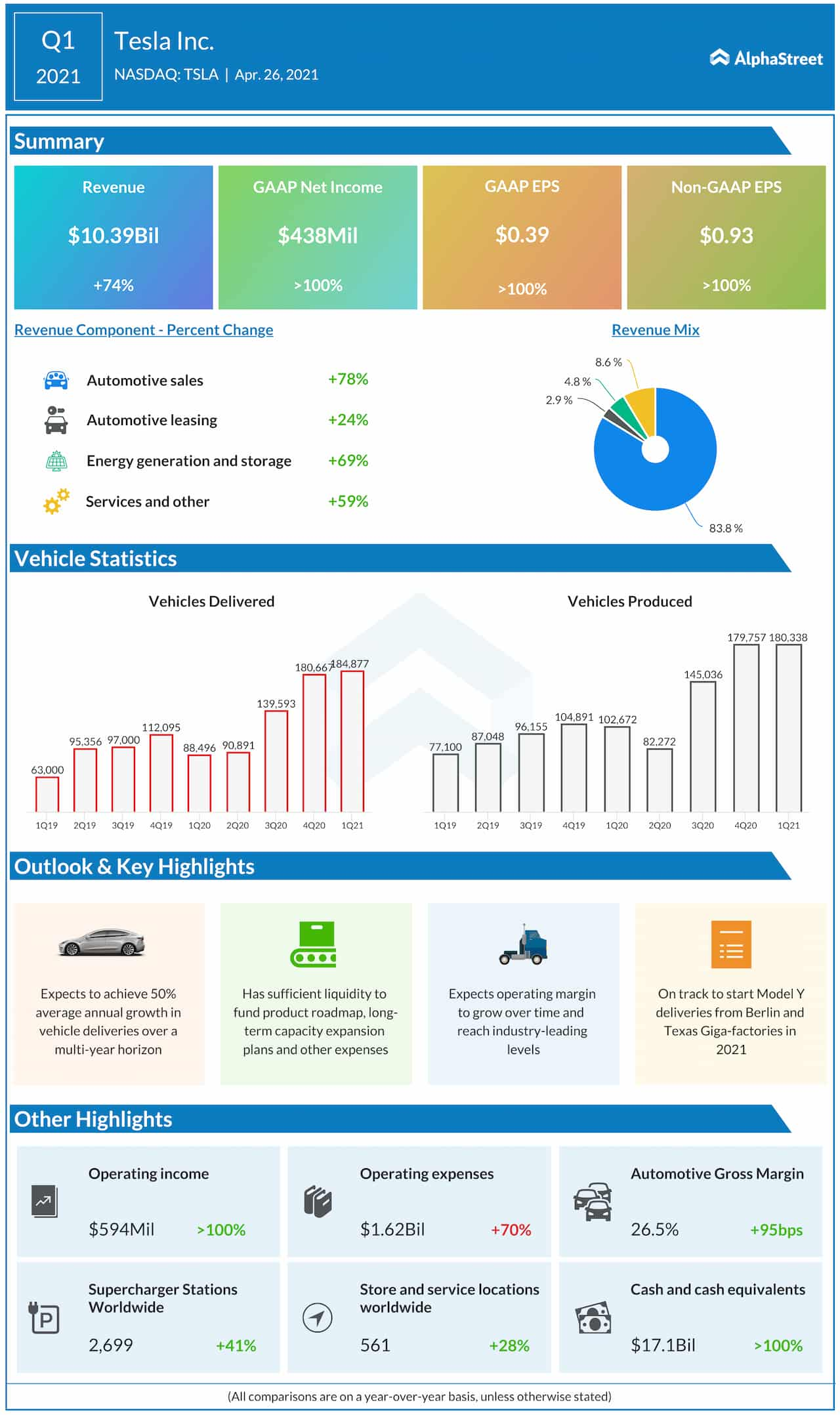Tesla's Q1 Profit Decline: Impact Of Musk's Trump Ties

Table of Contents
Decreased Tesla Profitability: A Deeper Dive into Q1 Results
Tesla's Q1 2024 earnings report revealed a significant drop in profitability, a stark contrast to previous quarters. Several key factors contributed to this decline, impacting Tesla's financials and causing concern among investors.
-
Lower-than-expected vehicle deliveries: Tesla delivered fewer vehicles than analysts predicted, impacting overall revenue. Production bottlenecks and supply chain disruptions were cited as contributing factors. This directly impacted Tesla delivery numbers, a key metric for evaluating the company's performance.
-
Increased production costs: Rising costs of raw materials, particularly battery components, significantly squeezed Tesla's profit margins. Increased energy costs and labor expenses further exacerbated this issue. Understanding Tesla production costs is crucial for analyzing the sustainability of its current business model.
-
Price cuts and their impact on margins: Tesla's aggressive price cuts, implemented to boost sales in a competitive market, undeniably reduced profit margins. This strategic decision, while aimed at increasing market share, had a direct and immediate impact on Tesla financials and Q1 earnings report.
-
Competition from other EV manufacturers: The EV market is becoming increasingly crowded, with established automakers and new entrants vying for market share. This intensified competition puts pressure on Tesla to maintain its competitive edge, impacting its pricing strategy and profitability. Analyzing EV competition is vital for understanding the challenges faced by Tesla.
The Musk-Trump Connection: A Potential Source of Investor Uncertainty
Elon Musk's relationship with Donald Trump is a complex and highly publicized one. Musk has publicly endorsed Trump on several occasions, a stance that has garnered both support and criticism. This connection raises several potential concerns for Tesla:
-
Public endorsements and statements of support: Musk's public support for Trump could alienate some customers and investors who disagree with his political views. This poses a significant risk to Tesla's brand image, particularly in markets where Trump's popularity is low.
-
Potential impact on Tesla's brand image and consumer sentiment: The association with Trump's controversial policies and statements could negatively impact Tesla's brand perception among consumers who prioritize social responsibility and ethical business practices. This could translate to lower sales and decreased investor confidence.
-
Regulatory risks associated with the Trump administration's policies (or lack thereof): While Trump is no longer in office, his influence on the political landscape remains, impacting policies related to environmental regulations and subsidies for the EV industry. Uncertainty surrounding these factors can make investors hesitant.
-
Investor reactions to Musk's political affiliations: Some investors may be wary of investing in a company led by someone with such outspoken political views, particularly when those views diverge from their own. This could lead to decreased investment and a lower Tesla stock price.
Market Reaction and Stock Performance: Analyzing the Impact
Tesla's Q1 results, combined with the ongoing discussion surrounding Musk's political affiliations, had a noticeable impact on the stock market.
-
Tesla stock price fluctuations following the earnings announcement: The announcement of Tesla's Q1 earnings led to significant fluctuations in Tesla's stock price, reflecting investor uncertainty about the company's future prospects. The stock market reacted swiftly to the news, highlighting the market’s sensitivity to Tesla's financial performance.
-
Analyst predictions and interpretations of the financial report: Analysts offered diverse interpretations of the Q1 results, some emphasizing the temporary nature of the decline while others expressed more serious concerns about Tesla's long-term sustainability. These varying perspectives further fueled market volatility.
-
Impact on Tesla's overall market capitalization: The Q1 decline resulted in a decrease in Tesla's market capitalization, highlighting the significant financial implications of the underperformance. This illustrates the direct link between financial results and market valuation.
-
Comparison to other EV stocks' performances: Comparing Tesla's performance to that of its competitors in the EV stock market provides valuable context, helping to assess whether the decline is specific to Tesla or a broader trend in the industry. This comparative analysis is crucial for understanding the competitive dynamics in the EV sector.
Long-Term Implications for Tesla and the EV Industry
The Q1 decline and the ongoing discussion about Musk's political stance raise important questions about Tesla's long-term sustainability and the future of the EV industry.
-
Sustainability of Tesla's growth strategy: The Q1 results call into question the sustainability of Tesla's aggressive growth strategy, particularly in light of increasing competition and rising production costs. A reassessment of its strategies may be necessary for continued success.
-
Potential shifts in consumer preferences: The impact of Musk's political views on consumer sentiment remains to be seen, but it could potentially influence consumer buying decisions, especially among environmentally conscious buyers.
-
Adaptability of Tesla to changing political and economic landscapes: Tesla's ability to adapt to shifts in political and economic landscapes will be crucial for its long-term success. The uncertainty surrounding government policies and consumer preferences demands flexibility and resilience.
-
Broader implications for the future of the electric vehicle industry: Tesla's experience serves as a case study for the broader EV industry, highlighting the challenges and opportunities in navigating a rapidly evolving market. The success or failure of Tesla will have significant ripple effects throughout the entire industry.
Conclusion: Understanding the Tesla Q1 Decline and the Musk-Trump Factor
This article has explored the various factors contributing to Tesla's Q1 profit decline, emphasizing the potential influence of Elon Musk's political ties with Donald Trump. While financial factors like lower-than-expected deliveries and increased production costs are undeniably significant, the impact of Musk's political associations on investor sentiment and brand perception cannot be ignored. Understanding both the financial and political dynamics is crucial for a comprehensive analysis of Tesla’s Q1 decline and its implications for the future. Stay informed about the ongoing developments at Tesla and the impact of various factors, including political considerations, on its future performance. Continue analyzing Tesla's Q1 decline and its implications for the EV market.

Featured Posts
-
 Abrego Garcia Judge Orders End To Stonewalling By Us Lawyers
Apr 24, 2025
Abrego Garcia Judge Orders End To Stonewalling By Us Lawyers
Apr 24, 2025 -
 Hopes Double Shocker Liams Pledge To Steffy And Lunas Impact The Bold And The Beautiful Preview
Apr 24, 2025
Hopes Double Shocker Liams Pledge To Steffy And Lunas Impact The Bold And The Beautiful Preview
Apr 24, 2025 -
 William Watson Understanding The Liberal Platform Before You Vote
Apr 24, 2025
William Watson Understanding The Liberal Platform Before You Vote
Apr 24, 2025 -
 Teslas Q1 2024 Earnings Report A 71 Drop In Net Income
Apr 24, 2025
Teslas Q1 2024 Earnings Report A 71 Drop In Net Income
Apr 24, 2025 -
 The Ted Lasso Resurrection Brett Goldsteins Perspective On Season 3
Apr 24, 2025
The Ted Lasso Resurrection Brett Goldsteins Perspective On Season 3
Apr 24, 2025
